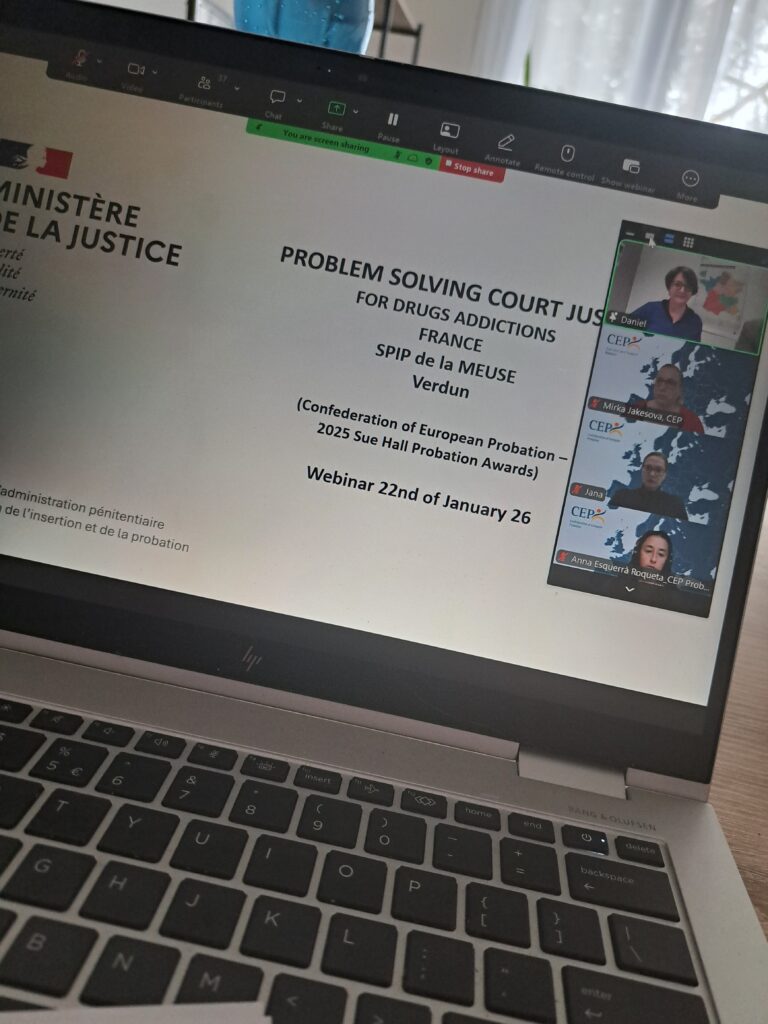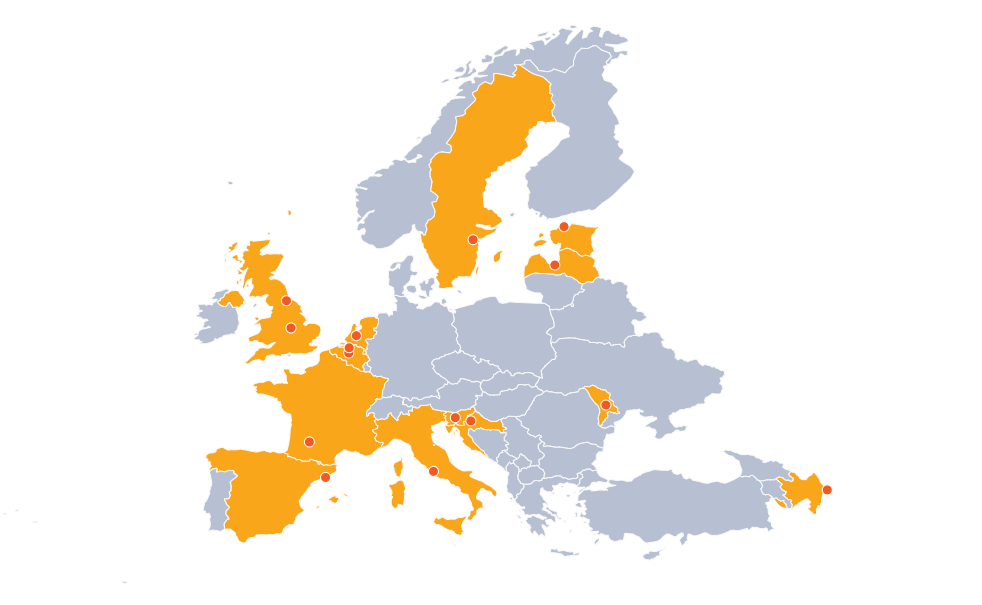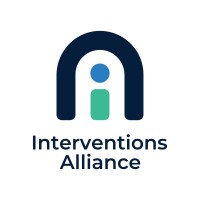Previous Article
News
A day in the life of a Swedish probation officer: Karin Robinson
Is the day of a probation officer in Germany similar to the one of someone working in Romania? In the series ‘A day in the life of a probation officer’, we publish articles written by probation officers from different countries in Europe to see if their days look a like or are very different from each other. This article is written by Karin Robinson, probation officer for the Swedish Prison and Probation Service.
 The Swedish Prison and Probation service consists of 46 prisons, 32 remand centers and 34 probation offices spread out across the country. The Swedish Prison and Probation service in Swedish is called Kriminalvården. Our moto is “better out” and our goal is to assist our clients in living a pro-social and independent life after completing their sentence. Sweden also strives to replace shorter prison sentences with community supervision where possible. Sweden utilises evidence based interventions as well as tools for assessing risk for recidivism and continues to regularly evaluate these methods.
The Swedish Prison and Probation service consists of 46 prisons, 32 remand centers and 34 probation offices spread out across the country. The Swedish Prison and Probation service in Swedish is called Kriminalvården. Our moto is “better out” and our goal is to assist our clients in living a pro-social and independent life after completing their sentence. Sweden also strives to replace shorter prison sentences with community supervision where possible. Sweden utilises evidence based interventions as well as tools for assessing risk for recidivism and continues to regularly evaluate these methods.
I graduated from college in 2009 with an applied degree in behavioural psychology and began my career within the Correctional Service of Canada in the of fall 2009, where I worked in prisons. I moved to Sweden in the fall of 2014 and was employed within the Swedish Prison and Probation service as a probation officer in spring 2015. I work in Sweden’s capital, Stockholm. Stockholm has three probation offices and my office is in Sollentuna. The Swedish Prison and Probation service requires probation officers to have a university degree in social work, law, criminology or equivalent.
There are a lot of duties that fall under the umbrella of community services. They are organised in several teams, as follows:
- Administrative team;
- Pre-trial assessments ordered by the courts and initial risk assessments for probation clients;
- Programs;
- Community services and electronic monitoring;
- A team that works in remand centers to initiate contact early on and motivate clients into treatment for substance abuse.
Then there is my team that supervises probation and statutory release and completes assessments for parole.
Beginning of the day
My day often begins with a cup of coffee as I quickly look over my schedule for the day. On Mondays our team has a meeting where we present cases of non-compliance with frequency of contact or conditions and make a plan for dealing with the non-compliance cases. We also look over each correctional plan every four months and discuss if the plan is being followed through as expected or if changes or modifications need to be made to the plan. The majority of my day is spent in appointments with clients or in various meetings. We set a frequency of contact for appointments that is based on offender risk. The idea is that higher risk requires more intensive interventions. The majority of our client meetings are held here at the probation office. We have special appointment rooms that we use. We have also started to use skype as a tool for our moderate-low risk clients. They are required to come here for meetings, but we can replace some of our in-person meetings with skype meetings instead. Our interviews follow a structure based on cognitive behavior therapy with a focus on attitudes and believes associated with crime.
Thursday mornings our probation board is here who deals with sanctions for non-compliance. The board consists of a judge, laymen, a secretary and the prison and probation service. The client is also required to be present. Sanctions can include a written condition with regards to frequency of contact, a warning or the case can be sent back to the courts requesting a hearing for re-sentencing in the case of probation clients. In the case of statutory release, the client can be sent back to prison for a short period if there is still a portion of sentence left.
Afternoon
We close our waiting room between 12.00 – 13.00 everyday for lunch. There is a mall nearby and I often go there for a little walk to get some air, a change of scenery and clear my head a bit. After lunch I am back to work. Afternoons are often similar to mornings and filled with appointments. Our clients often have interventions in their correctional plan and/or conditions from the court to follow a certain treatment plan. Therefore, we rely heavily on collaboration with other agencies that specialise in areas such as addiction services, social services, mental health services etc. This means attending meetings with other agencies for my clients and calling to follow up compliance with treatment plans is also very important.
I also have a responsibility to take an active roll in the development of correctional planning for offenders from the beginning of a prison sentence. The purpose of this is that the probation office is responsible for deciding on supervision after statutory release, completing assessments for parole release as well as ensuring that the plan is appropriate to reducing risk for recidivism and can be followed through into the community after release with the assistance of relevant community agencies.
End of the day
I always aim to end my day with making sure that my documentation from the day is up to date and that I have a plan for the next coming day. There are a lot of loose threads and small details to remember and I rely very much on to-do lists to remember small details.
Every day is different and some days do not begin with a cup of coffee and calmly looking over my schedule and reading my email. The dynamic nature of my work is one thing that I love about my job. My days are rarely predictable and flexibility and the ability to go with the flow is integral.

Related News
Keep up to date with the latest developments, stories, and updates on probation from across Europe and beyond. Find relevant news and insights shaping the field today.
New

Alternatives to pre-trial detention, Community Sanctions and Measures, Framework Decisions, Technology
Future of Criminal Justice: CEP’s Contribution to Key 2025 Dialogues
27/01/2026
Throughout 2025, CEP and its representatives actively participated in the online Technical meetings ahead of the HLF as well as the High Level Forum on Future of Criminal Justice taking place on 4-5 March 2025, 20-21 May 2025 and 1-2 October 2025 in Brussels, Belgium.
Recap

Alternatives to pre-trial detention
Recap: Webinar on Alternatives to Detention 2026
26/01/2026
On Thursday 22 January, CEP hosted the first webinar of 2025 on the topic of Alternatives to Detention. The session led by Ms. Marina Pajoni from the French Prison and Probation Service titled „Problem Solving Justice in Pracitce: The Meuse Probation Service´s Approach to Drug Addiction“ introduced an innovative programme developed by the Meuse Probation Service in close cooperation with the French Ministry of Justice.
New

Education and Training
CEP launches an interactive European map of probation education and training institution contacts
22/01/2026
The CEP is pleased to inform its members that a new dedicated section has been developed on the CEP website featuring an interactive map of Europe.
New

CEP Events
CEP activity calendar 2026
20/01/2026
As we begin the new year, we would like to thank all CEP members, partners, and participants for your continued engagement and valuable contributions. Your involvement plays an essential role in shaping CEP’s work and activities.
We are pleased to share the CEP calendar for 2026, which provides an overview of the events planned for the year ahead. We look forward to continuing our collaboration and welcoming you to upcoming CEP activities throughout the year.
Thank you for being part of the CEP community.
New

CEP members, Gender-based violence
Interventions Alliance’s Eden House Recognized as Outstanding
15/01/2026
CEP is delighted to share that Eden House, an Interventions Alliance residential service for women with high-risk or complex needs on probation, has been rated “Outstanding” overall by HM Inspectorate of Probation. In 2022, Eden House was honored with the CEP Public Protection Award. Our sincere congratulations to the team for this remarkable achievement.
New

Education and Training
The Judicial Training Dashboard
14/01/2026
The European Training Platform (ETP) is a search tool for justice professionals. You can find self-learning materials on a great variety of EU law practice areas and related topics, as well as links to training providers’ homepages and course catalogues.
Subscribe to our bi-monthly email newsletter!
"*" indicates required fields
- Keep up to date with important probation developments and insights.

